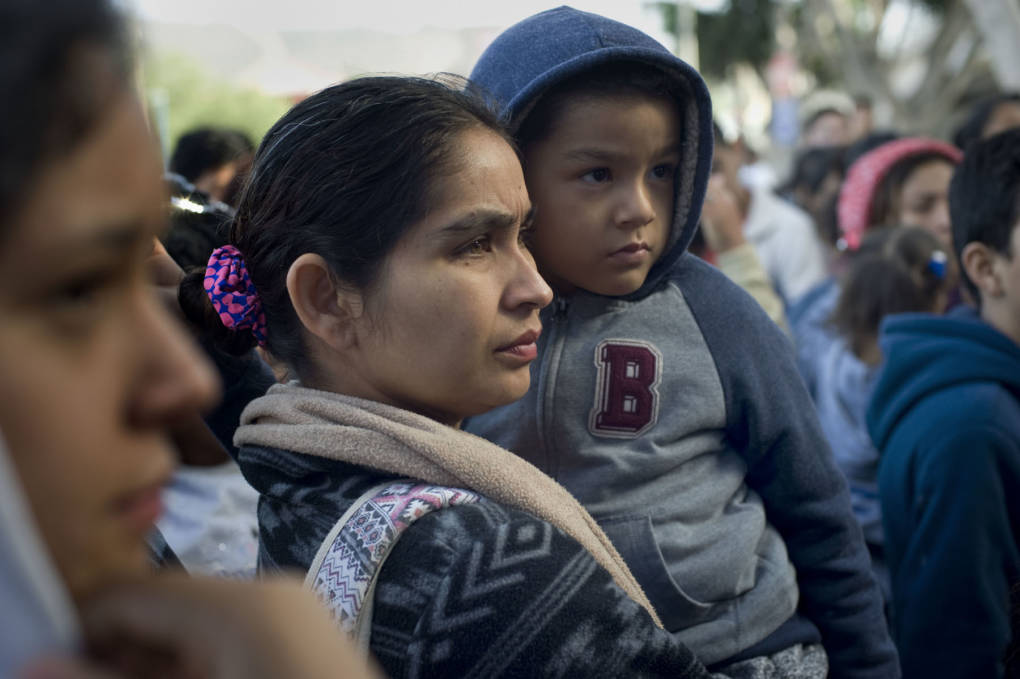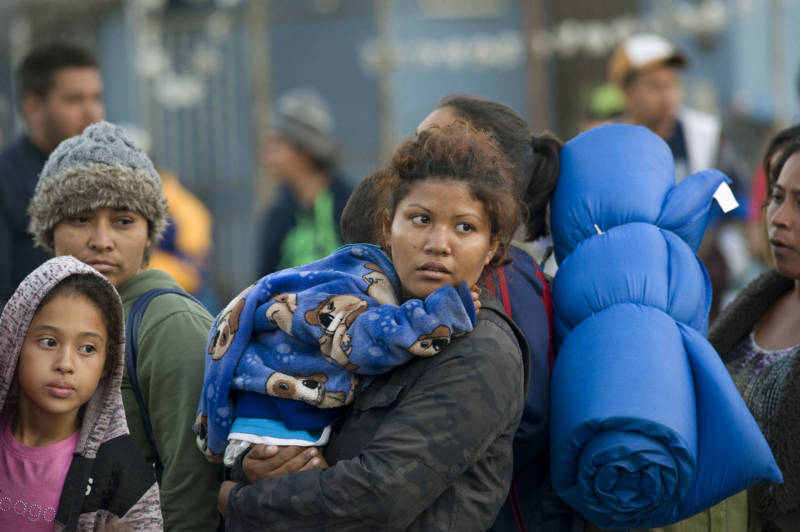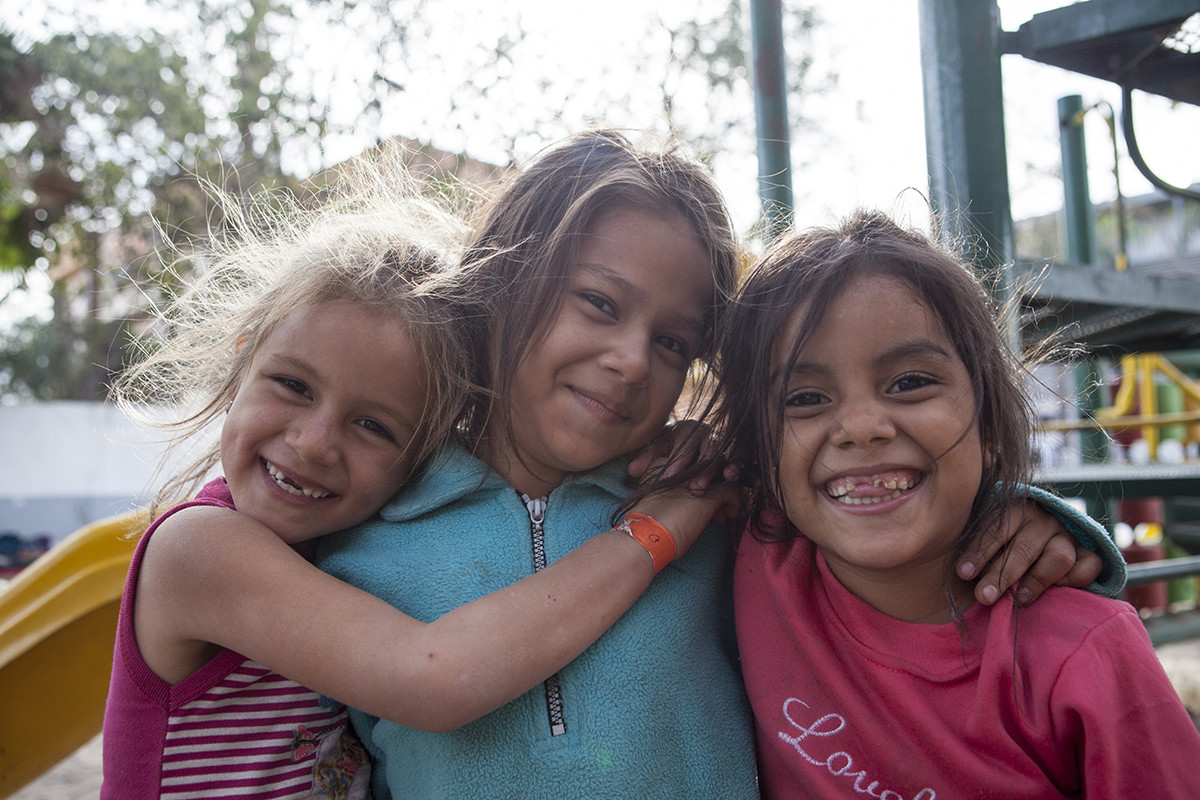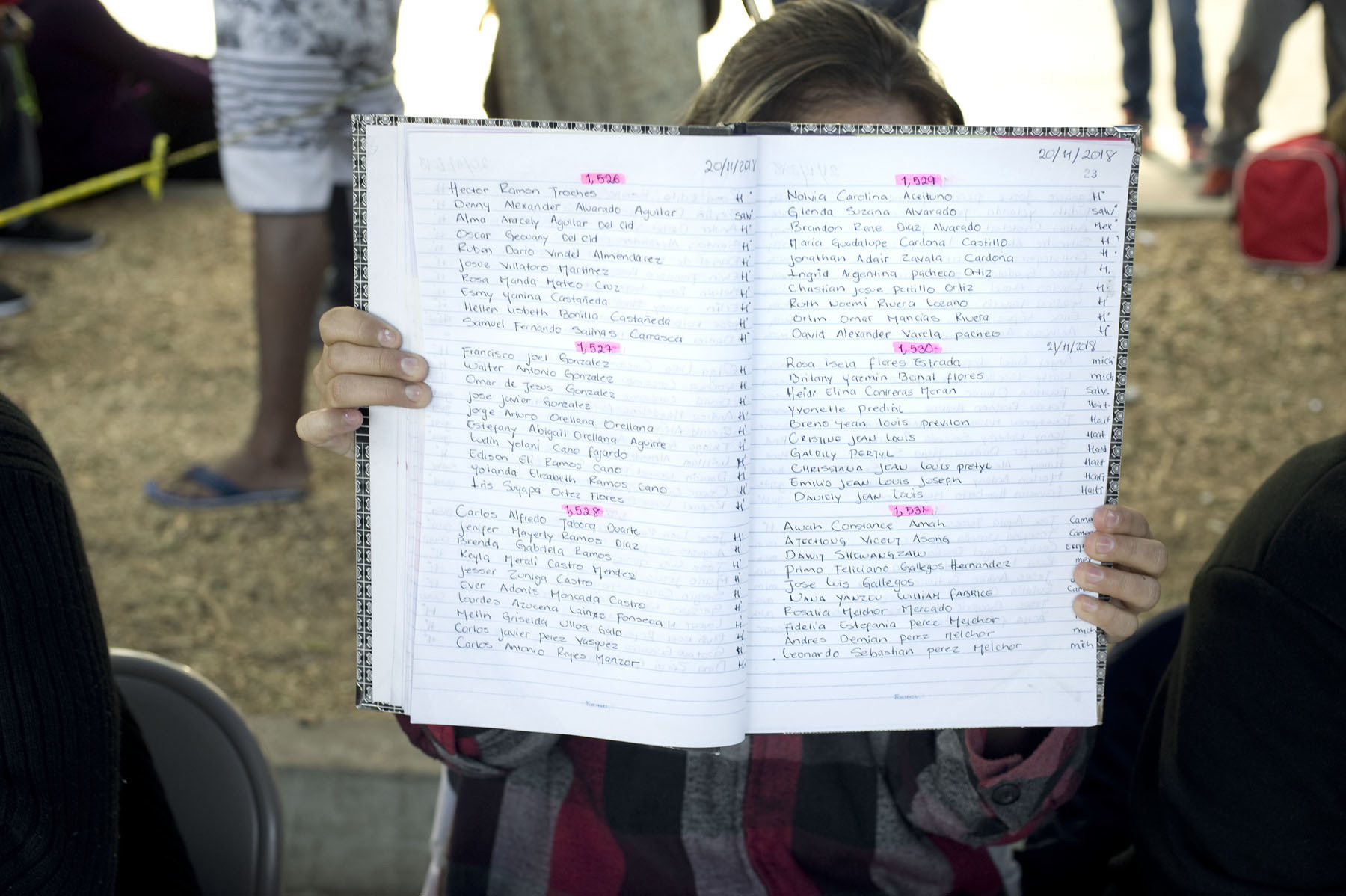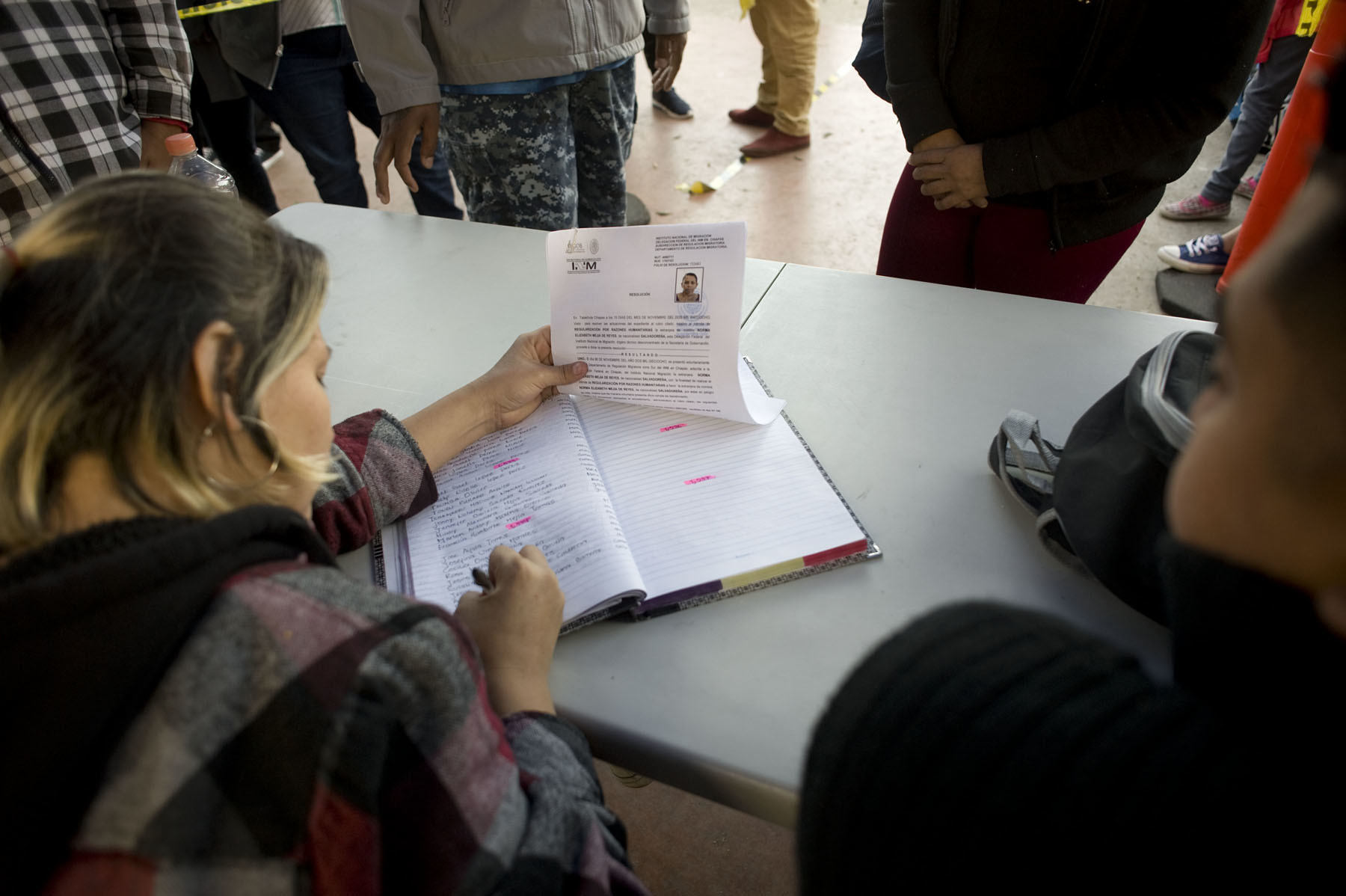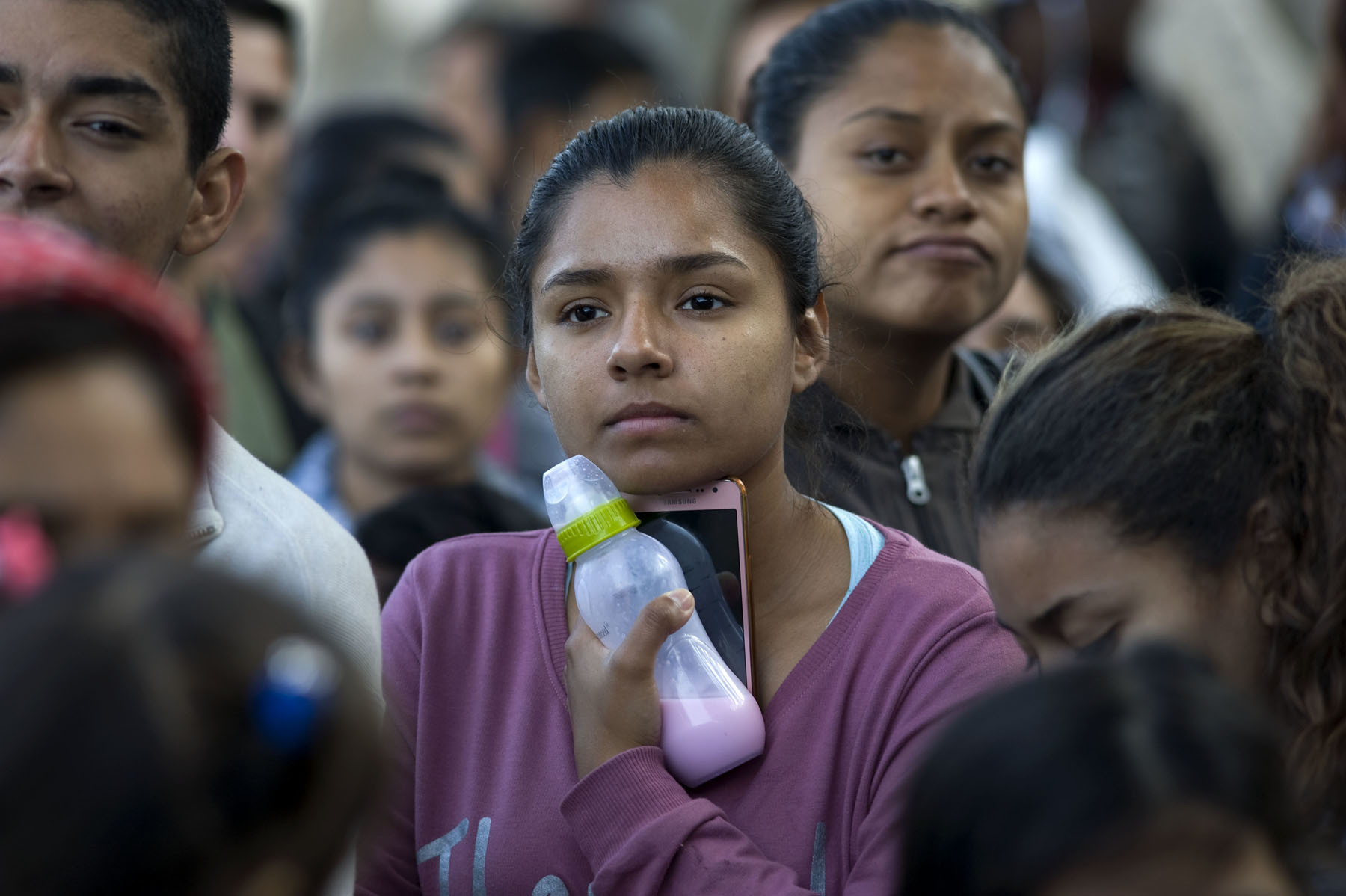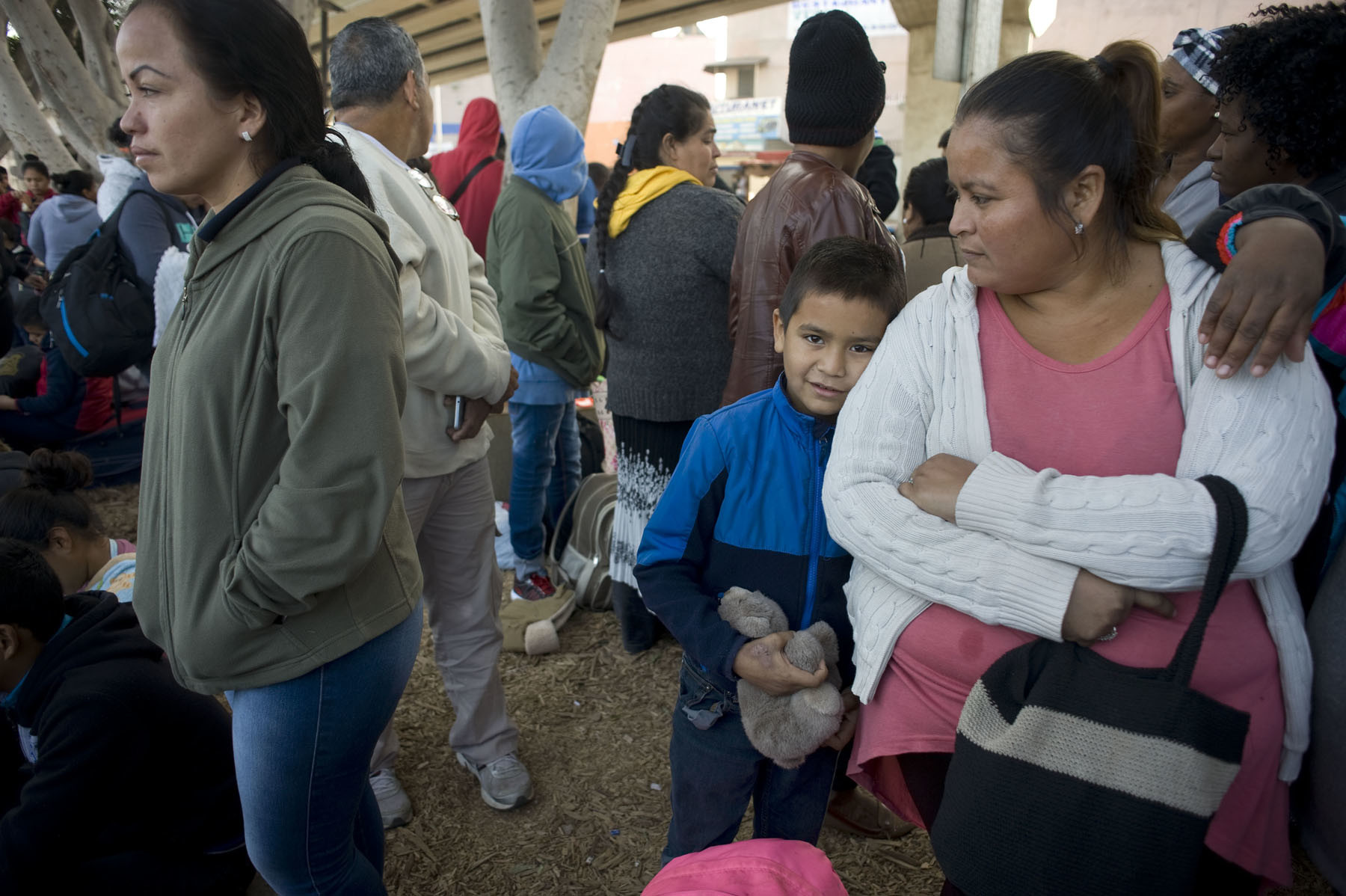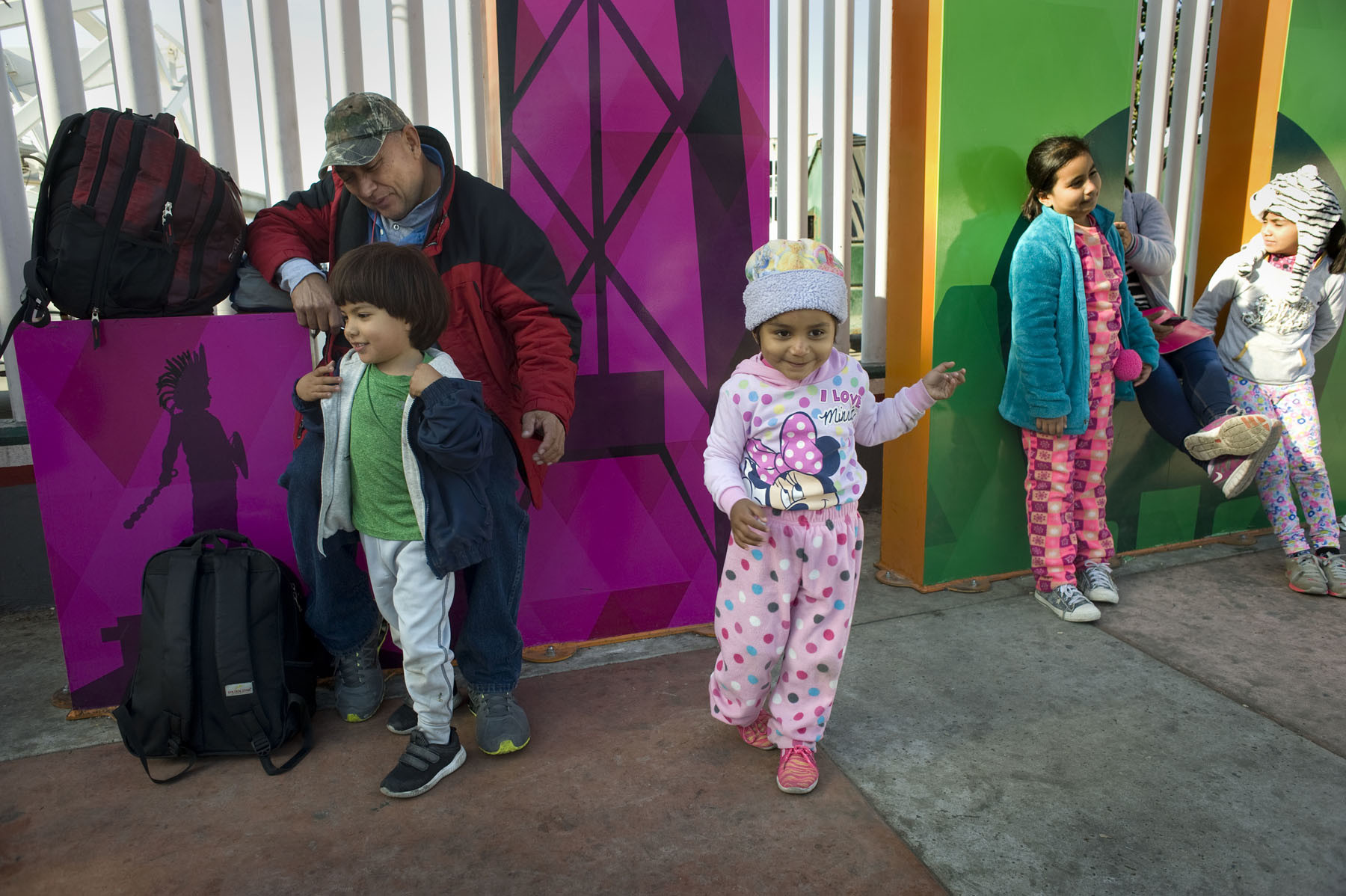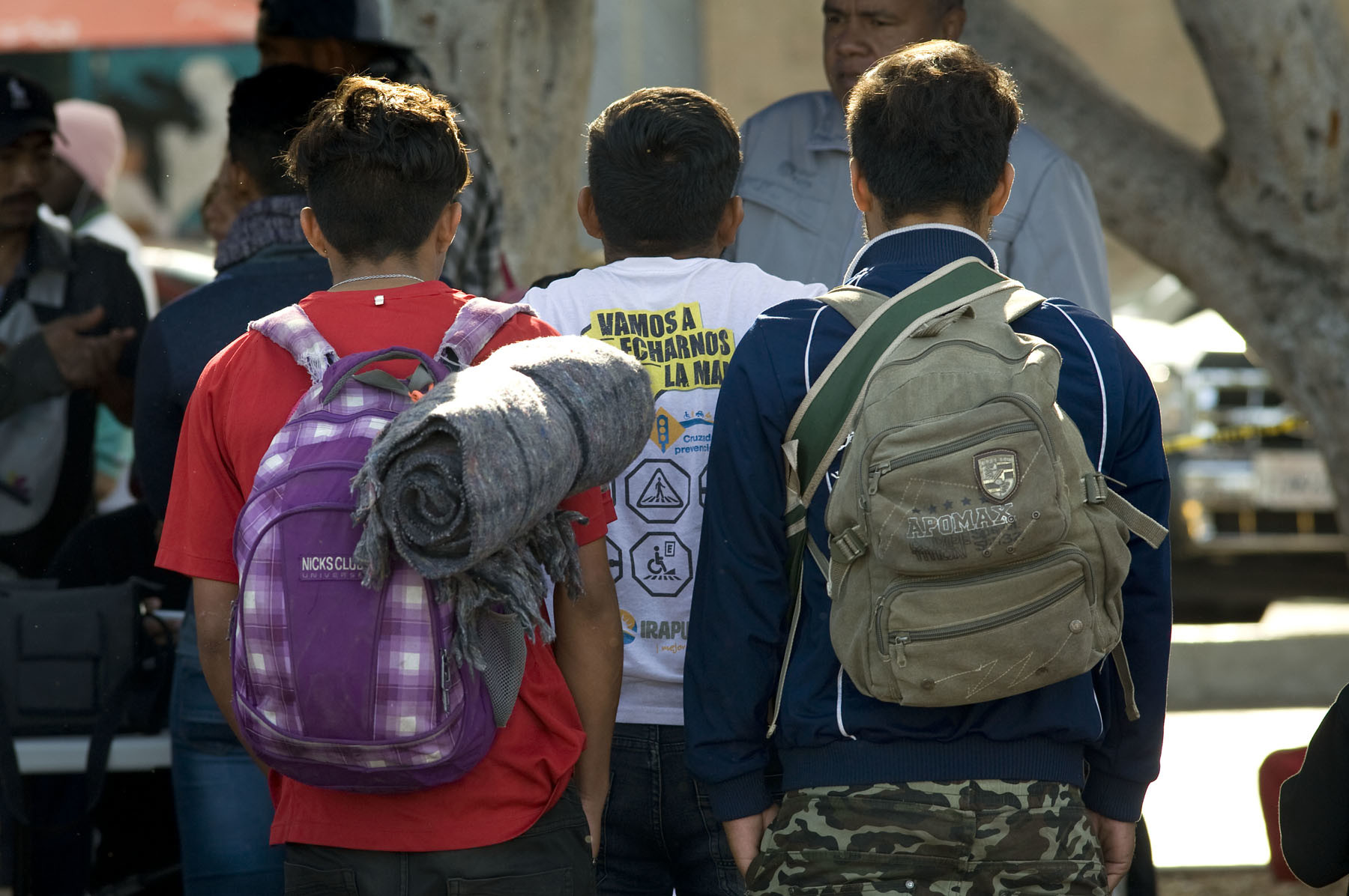California has long been a beacon for immigrants from Central America. In the 1980s, hundreds of thousands found refuge here from the civil wars in El Salvador, Guatemala and elsewhere. Others gained Temporary Protected Status in the United States after earthquakes and hurricanes ravaged their countries. Now, many of the migrants in the large caravan that recently reached Tijuana are hoping to reunite with family members in Los Angeles or the San Francisco Bay Area.
When the first busloads arrived in Tijuana, some of the road-weary travelers found their way to the Pacific Ocean. Children and adults alike played in the surf. California was visible through the steel bars of the border fence — the sand and salt water identical on both sides.
"If God's willing, I'll get to California," Carlos Celaya, a 17-year-old from Honduras, said. "It's beautiful there."
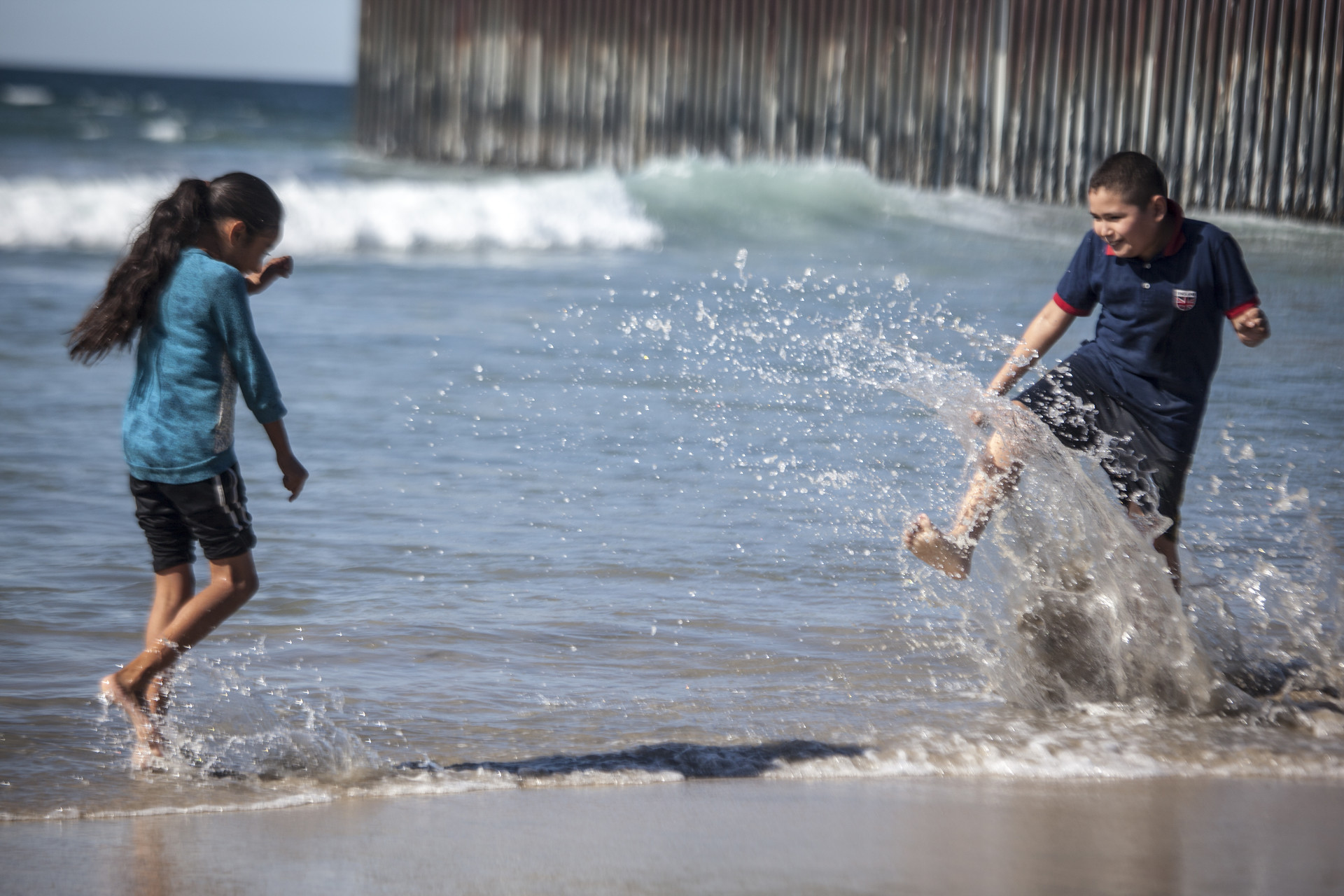
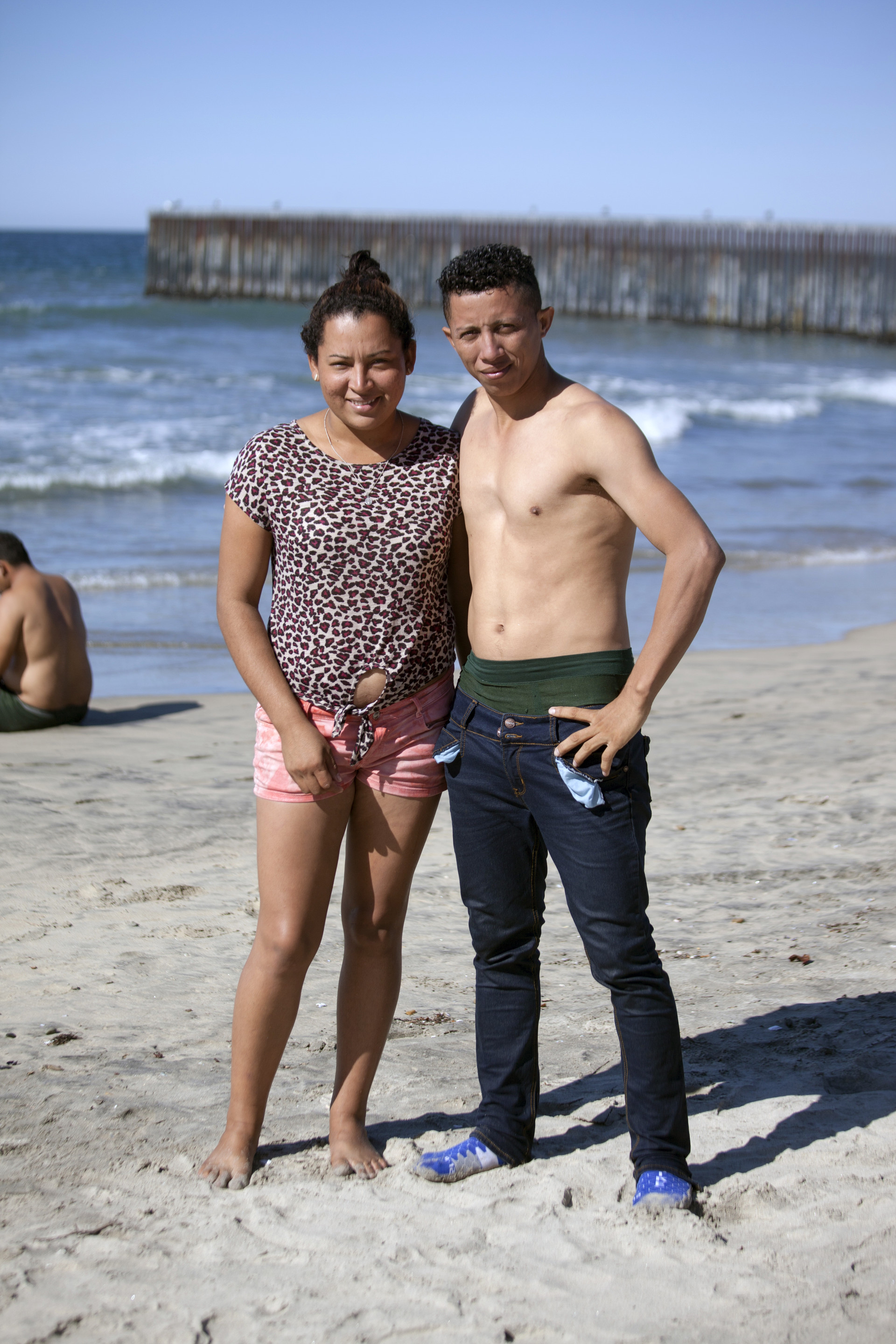
Beylin Rios and her husband, Rolando Arce, from San Pedro Sula, Honduras, jumped in the ocean with their clothes on. One of the few things Rios carried on her journey was a necklace with an image of the Virgin of Guadalupe, to protect her. Rios said if she can get to California, she'll take any kind of job, including washing dishes in a restaurant. "It's honest work," she said.
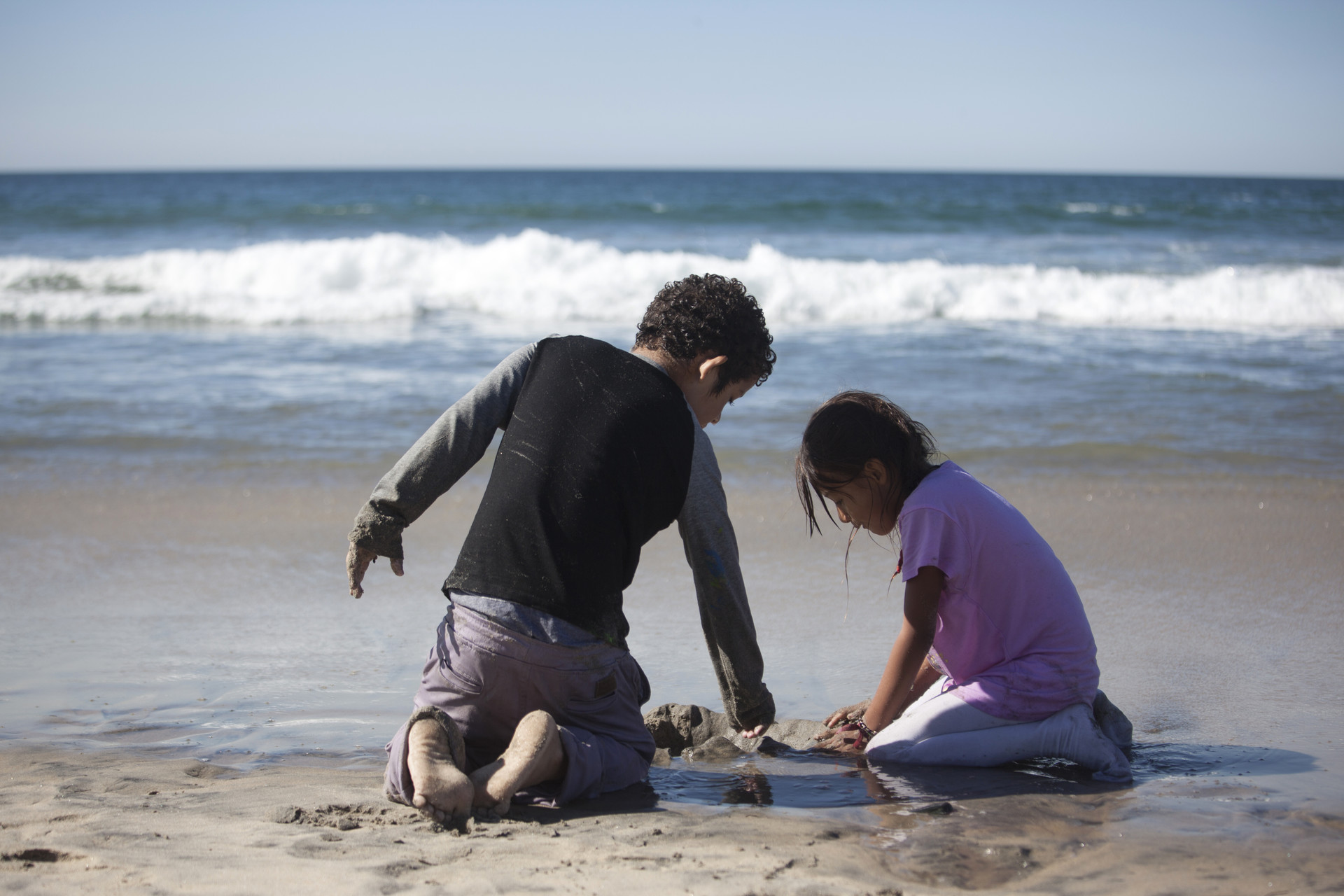

At a Catholic service center for migrants, a number of men from the caravan received haircuts from beauty school students who volunteered their time. Several of the men said they wanted to appear respectable to people in Tijuana and to the officials at the San Diego border crossing, where they must make their case for asylum.
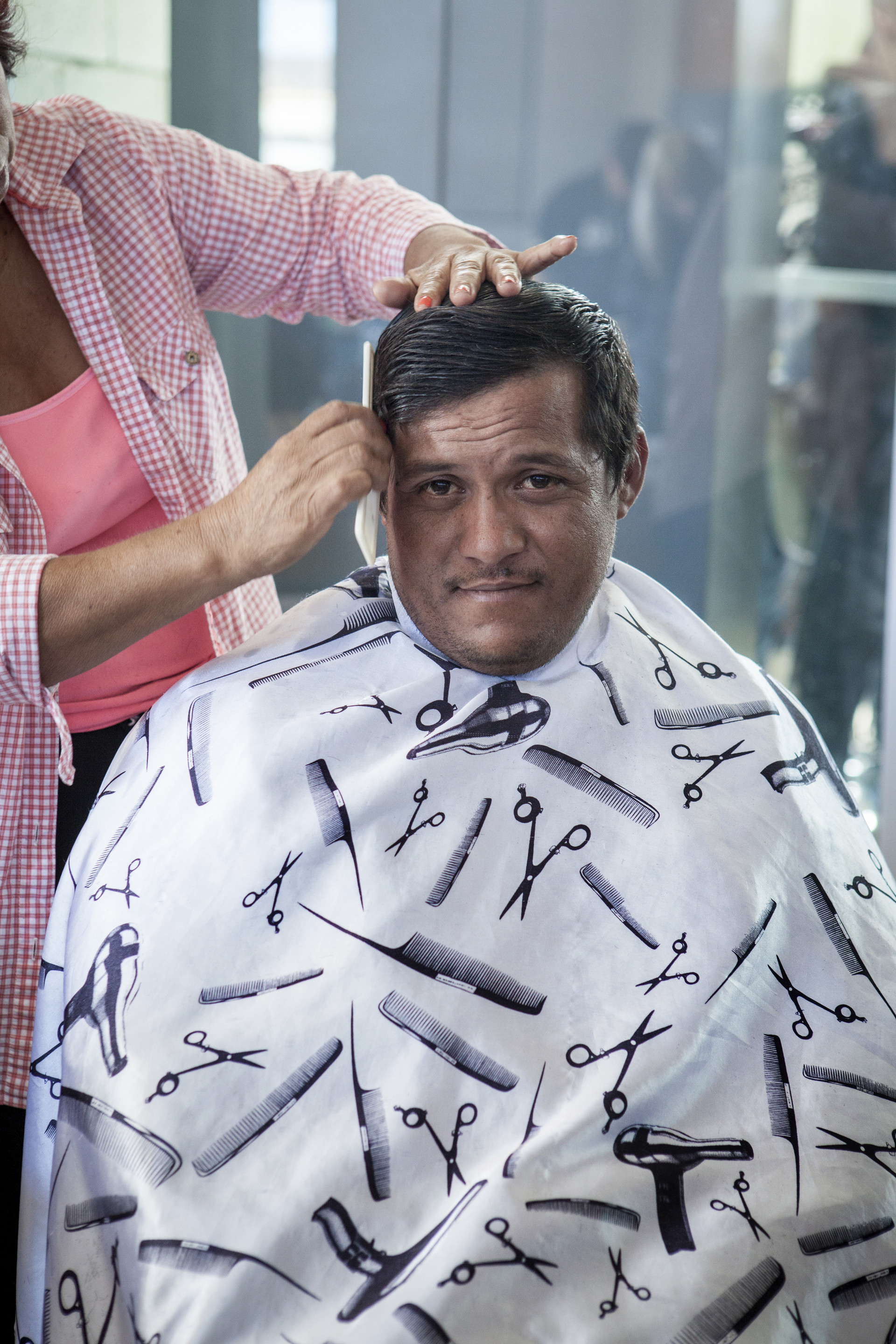
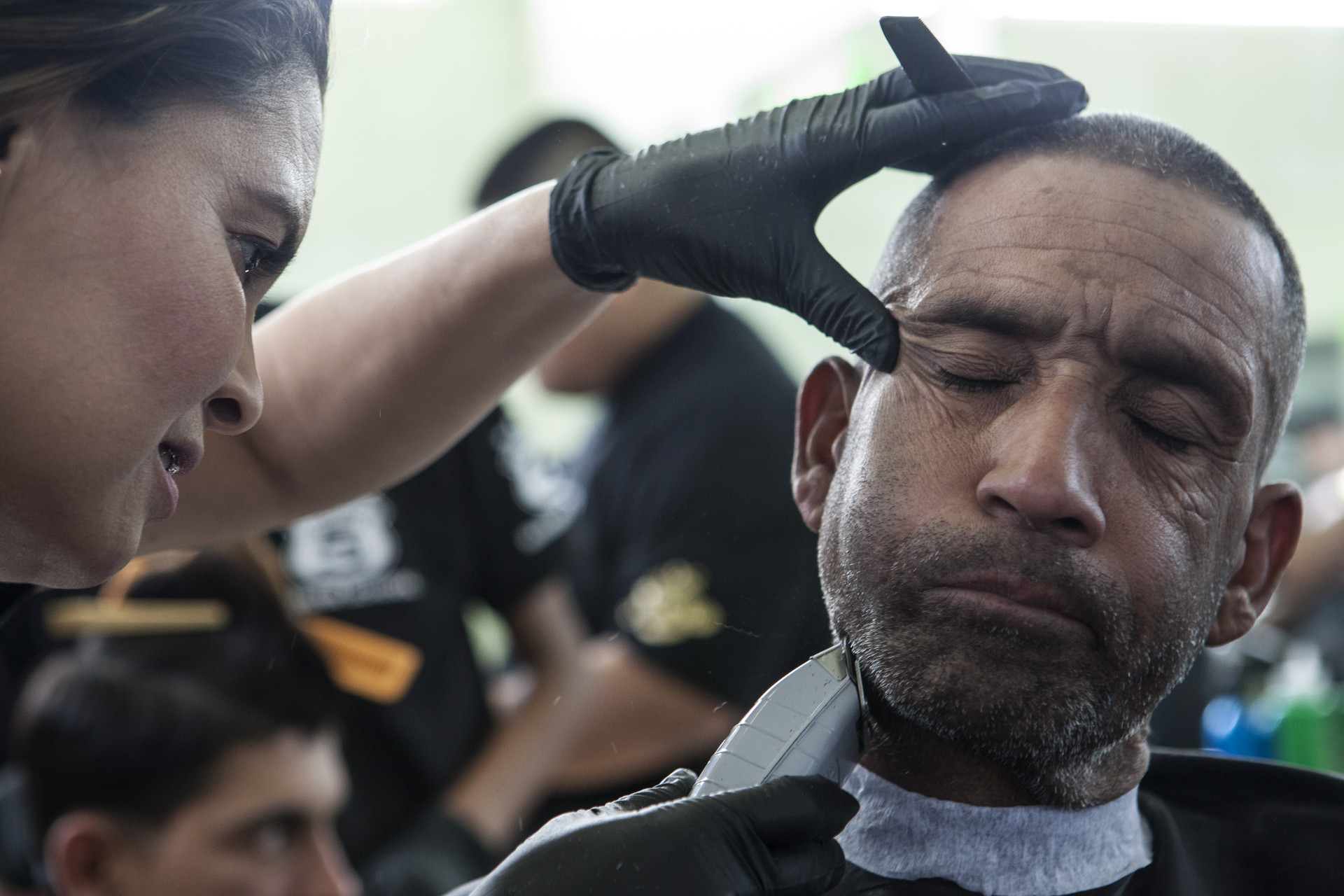
Many of the migrants were mothers and fathers traveling with their children. The legacy of civil wars, weak economies and ineffective judicial institutions has fueled an exploding gang problem in El Salvador, Honduras and Guatemala. Parents say they're desperate to get their children and teenagers away from the violence.
